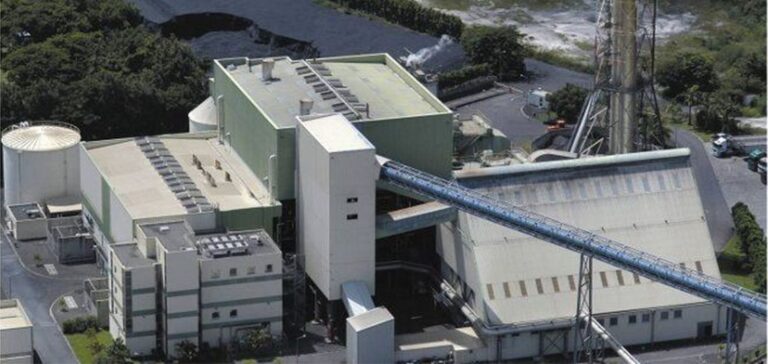Overseas France’s last coal-fired power plant, located in Guadeloupe, is to be converted to biomass by 2025, according to an announcement made on Wednesday by renewable energy producer Albioma. This initiative marks a crucial step in the region’s energy transition, with a projected 87% reduction in greenhouse gas emissions.
Transition to Biomass
The Le Moule power plant, which comprises three units, has already seen one of them switch to 100% biomass in 2020. Albioma has confirmed that conversion work on the ALM2 unit will begin immediately, to achieve full biomass operation by 2025. The raw materials used for this conversion will include local biomass deposits such as forest wood, pruning wood and bagasse, a residue of sugarcane stalks. These sources will be supplemented by imported wood pellets, mainly from Canada.
Impact on the energy mix
The plant’s third unit will run exclusively on bagasse during the sugar harvest, and will be placed in reserve the rest of the time. This strategy will maximize the use of local resources while minimizing periods of inactivity. The plant’s conversion will help increase the share of renewable energies in Guadeloupe’s energy mix from 35% to 45%.
Contract extension and future prospects
Albioma also announced the extension of Albioma Le Moule’s power sales contract until 2047, ensuring long-term stability for the island’s energy supply. The plant currently generates around 30% of Guadeloupe’s electricity and is closely linked to the Gardel sugar mill, illustrating the importance of local industrial synergies.
According to Frédéric Moyne, Chairman of Albioma, this conversion marks the end of coal-fired power generation in France’s overseas territories. He is convinced that renewable energies will be able to cover 100% of the electricity mix in these territories by 2030, thanks to ambitious projects like this one.
The conversion of the Le Moule power plant represents a significant step forward in the fight against climate change and the sustainable development of the French overseas territories. This transition to biomass shows the way for other regions and contributes to the global objective of reducing greenhouse gas emissions.






















